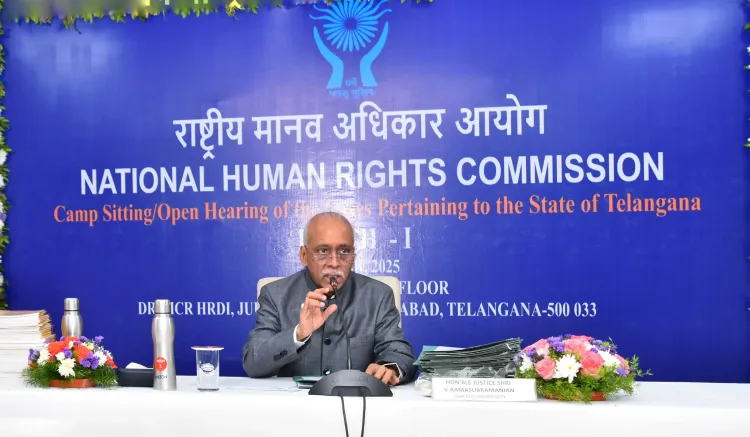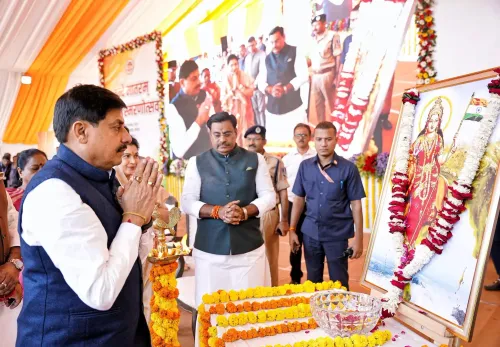What Steps is the National Human Rights Commission Taking in Hyderabad?

Synopsis
Key Takeaways
- NHRC opens two-day hearing in Hyderabad.
- Focus on addressing human rights violations in Telangana.
- Two division benches conducting the hearings.
- Full bench established for significant public interest cases.
- Commitment to uphold constitutional rights emphasized.
Hyderabad, July 28 (NationPress) The National Human Rights Commission (NHRC) has initiated a two-day open hearing and camp sitting in Hyderabad to address grievances and cases related to the State of Telangana.
These proceedings are dedicated to facilitating swift resolution of complaints and ensuring accountability among public authorities.
The hearings are being conducted by two division benches at the Dr MCR Human Resource Development Institute.
An official announcement revealed that the first division bench is led by Justice V. Ramasubramanian, Chairperson of the NHRC, while the second bench is under the leadership of Justice Bidyut Ranjan Sarangi and includes Member Vijaya Bharathi Sayani.
A full bench has also been established to examine key cases of significant public interest, primarily focusing on suo motu cases taken up by the commission. These cases encompass a variety of issues such as caste-based discrimination, social boycott, custodial abuses, police excesses, and violations pertaining to the rights to life, dignity, liberty, and livelihood.
The NHRC members will convene with senior state government officials on Tuesday. Following that, they will engage with NGOs and civil society representatives.
Chief Secretary K Ramakrishna Rao extended a warm welcome to the Chairperson and other members.
High-ranking officials from the government of Telangana were present to support the Commission, including Ravi Gupta, Special Chief Secretary (Home); Mahesh Bhagwat, Additional Director General of Police; Vikram Singh Mann, Additional Commissioner of Police; and PR Ch. Priyanka, the District Collectors, along with Superintendents of Police and officials from various departments. Their involvement aimed to ensure prompt responses and coordinated actions regarding the issues raised.
The Commission conducted the hearings in a timely, transparent, and compassionate manner, issuing definitive directions to relevant authorities for swift resolution. In instances where violations were confirmed, the Commission recommended and awarded monetary compensation to victims as warranted.
The National Human Rights Commission, established under the Protection of Human Rights Act of 1993, possesses the authority of a civil court, allowing it to summon records, examine witnesses, recommend departmental actions, and provide monetary relief to victims.
Through these open hearings and camp sittings, the Commission strengthens its commitment to uphold constitutional rights and human dignity, effectively bridging the divide between citizens and the justice system, as stated in the official release.









